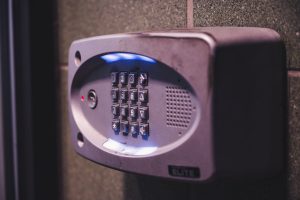Introduction
Closed-Circuit Television (CCTV) has become a cornerstone of modern public surveillance. From city streets to transit stations, parks to shopping centers, the presence of cameras has grown exponentially in the last two decades. Governments, law enforcement agencies, and even private organizations champion CCTV systems as essential tools for maintaining safety, deterring crime, and improving response times.
However, the widespread deployment of CCTV in public spaces is not without controversy. While many appreciate the security it provides, others argue it infringes upon civil liberties, raises privacy concerns, and may not be as effective as presumed.
In this article, we will explore both the benefits and drawbacks of installing CCTV in public places, providing a balanced view to help policymakers, citizens, and stakeholders make informed decisions.
Part 1: Benefits of CCTV in Public Places
1.1 Crime Deterrence
Perhaps the most cited benefit of public CCTV systems is their deterrent effect on criminal activity. The idea is simple: if people know they are being watched, they are less likely to commit crimes.
- Studies have shown that visible cameras can reduce crimes such as theft, vandalism, and assault.
- Police departments often use camera presence as a passive policing method, increasing coverage without deploying additional officers.
1.2 Enhanced Public Safety
Public safety is a broader concept that includes not just crime prevention but also crowd control, emergency response, and disaster management.
- CCTV helps monitor traffic flow, identify hazards, and alert authorities during emergencies like fires, floods, or accidents.
- Crowded events, such as concerts or parades, are safer when monitored in real-time, allowing quick action against threats or disorder.
Example: During large-scale protests or sports events, public CCTV helps prevent stampedes, control riots, and monitor suspicious behavior.
1.3 Aid in Criminal Investigations
When crimes do occur, CCTV footage can serve as crucial evidence:
- Video recordings help identify suspects, track movements, and corroborate witness statements.
- Prosecutors and defense attorneys alike rely on CCTV footage to strengthen or challenge claims in court.
1.4 Cost-Effective Surveillance
In the long term, CCTV systems can be more cost-effective than maintaining a high number of patrol officers:
- Cameras operate 24/7 without breaks or shifts.
- Modern systems can be integrated with AI to detect unusual behavior or facial recognition patterns.
While initial setup costs can be high, the reduced need for manpower and improved efficiency often justify the investment.
1.5 Public Reassurance and Confidence
A visible surveillance system can enhance the perception of safety among citizens:
- People feel more secure knowing someone is monitoring the area.
- Businesses benefit when customers feel protected in busy public zones.
In cities with high foot traffic, like New York or Tokyo, CCTV provides psychological comfort, especially at night or in isolated areas.
Part 2: Drawbacks of CCTV in Public Places
2.1 Privacy Concerns
One of the most serious issues with public CCTV systems is the erosion of privacy:
- Citizens may feel constantly watched, creating a “Big Brother” atmosphere.
- Without proper regulation, surveillance can overstep its intended use, collecting data unnecessarily.
Critics argue that people have a right to move freely without being monitored, especially in democratic societies.
2.2 Potential for Abuse
CCTV systems are only as ethical as the people managing them:
- Unauthorized access, voyeurism, or targeted surveillance of certain ethnic or political groups have been reported.
- In authoritarian regimes, CCTV has been used to monitor dissent, suppress protests, and enforce state control.
Example: In some regions, facial recognition technology has been deployed to track minority populations, raising serious human rights concerns.
2.3 False Sense of Security
CCTV is not a panacea. Relying too heavily on surveillance can result in a false sense of safety:
- Criminals may adapt by committing crimes in blind spots or wearing masks.
- People might ignore security practices, assuming cameras will prevent all incidents.
Cameras don’t intervene; they only observe. Without timely human response, surveillance can be ineffective in stopping active crimes.
2.4 Technical Limitations
Despite advancements, CCTV systems have technological shortcomings:
- Cameras may have limited resolution, poor night vision, or blind spots.
- Systems can malfunction, lose power, or be tampered with.
- AI-based surveillance may result in false positives or incorrect identifications.
Overreliance on imperfect systems can lead to wrongful accusations and missed threats.
2.5 Cost of Implementation and Maintenance
While surveillance may save manpower costs over time, initial investments are high:
- Governments must spend on infrastructure, software, personnel training, and regular system maintenance.
- Upgrades are necessary to keep systems secure from cyber threats.
Small municipalities or developing countries may struggle to justify such expenses, especially if crime rates are low.
Part 3: Ethical and Legal Considerations
3.1 Data Protection and Regulation
To balance safety and privacy, strong legislation is required:
- Laws must define who can access footage, how long it’s stored, and how it can be used.
- Citizens should be informed of their rights, and surveillance should be transparent and accountable.
The EU’s GDPR includes specific provisions on video surveillance, serving as a potential model for other regions.
3.2 Community Involvement
Engaging the public in surveillance policy helps build trust:
- Local communities can participate in oversight committees.
- Public consultation ensures that CCTV is installed where it’s genuinely needed—not where it intimidates or discriminates.
Transparency and community input are key to ethical surveillance.
Conclusion
The use of CCTV in public places is a double-edged sword. On one hand, it enhances security, aids law enforcement, and increases public confidence. On the other, it raises significant concerns around privacy, ethics, and potential misuse.
To maximize the benefits while minimizing the drawbacks, societies must:
- Establish clear legal frameworks,
- Ensure transparency and oversight,
- Balance technology with human judgment,
- And most importantly, prioritize both safety and civil liberties.
CCTV is a powerful tool—but like any tool, its impact depends on how it’s used.
Secure Your Home and Business with Garrison Alarms!
Experience unmatched safety with Garrison Alarms – your trusted partner in cutting-edge home and business security solutions. With over 35 years of experience, we offer expert installation, state-of-the-art technology, and personalized security strategies tailored to your unique needs.
Our Services Include:
- Home & Business Alarms: Maximize security with our advanced wired and wireless alarm systems.
- CCTV Systems: Protect your property with high-resolution, 4K HD, and color night vision cameras.
- Access Control: Secure your premises with keypad entry, biometric solutions, and more.
- Alarm Monitoring: 24/7 monitoring to ensure your safety and peace of mind.
Why Choose Garrison Alarms?
- Expert & Professional Service: Our licensed technicians provide top-notch installation and support.
- Customer Satisfaction: We prioritize your security and satisfaction with a focus on quality and reliability.
- Affordable Pricing: Get the best security solutions at competitive prices.
Get a FREE Quote Today! Visit Garrison Alarms or call us at 09 520 4875 to learn more and secure your property today!
Garrison Alarms – Your Safety, Our Priority





